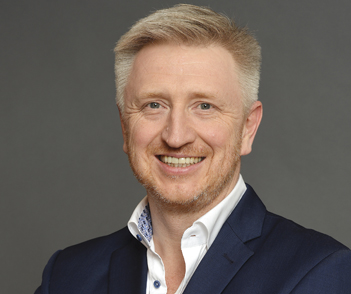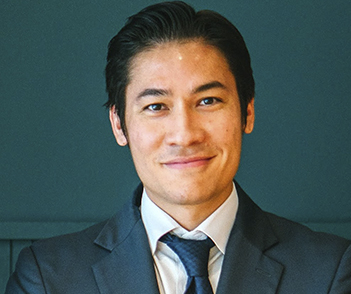EVIDENCE BASED INSIGHT
Fresenius Kidney Care in Asia Pacific
September 21, 2020 • 5 min read
MICHAEL ETTER, MD, MBA, MPH, PhD • WARREN MAH, BS, BA
Healthcare systems within the Asia Pacific region are all very different in terms of size, maturity, reimbursement structures, and progress toward integrated care. Fresenius Medical Care is addressing these complex disparities in a variety of ways. Initiatives include programs to identify gaps in systems and kidney care services, ensure dialysis delivery in developing markets, and promote medical education and professional development throughout the region.
GENERAL OVERVIEW IN THE ASIA PACIFIC REGION
The disease burden of chronic kidney disease (CKD) and endstage kidney disease (ESKD) in Asia Pacific is generally high due to many factors, ranging from a lack of access to healthcare in developing countries to an increase in lifestyle-related diseases in developed economies. It is important to refrain from viewing Asia Pacific as a homogenous region and to understand the fundamental differences between developing and mature healthcare systems. This is true across the region, but it is often also true within countries.
In some Asia Pacific countries, uneven economic development results in a highly fragmented healthcare landscape with significant discrepancies between the under-resourced public sector and a high-end private sector that features tate-of-the-art medicine at high prices. In countries such as China, India, and Indonesia, it is necessary to provide treatment service bundles based on available resources and a comprehensive healthcare framework provided by the government.
The typical dialysis facility in Asia Pacific is often located in standalone centers; however, the physical setup differs from market to market. Some centers deliver dialysis services in public hospitals, such as China. Most dialysis treatments in Singapore are provided at charitable organizations, while physician-operated private centers provide the majority of dialysis in Korea.
FRESENIUS KIDNEY CARE NETWORK IN ASIA PACIFIC
As of Q4 2019, Fresenius Kidney Care Asia Pacific (FKC-AP) provided over three million dialysis treatments at nearly 300 clinics across 10 markets (Figure 1). Based on the payor and healthcare systems, the developing markets include China, India, Indonesia, Malaysia, Philippines, and Thailand. The mature markets include Australia, Hong Kong, Singapore, and Taiwan.
REIMBURSEMENT STRUCTURES
Financing mechanisms within Asia Pacific are diverse, mirroring the market’s economic development. Reimbursement structure ranges from mature universal health coverage (Australia and Taiwan) to developing universal healthcare coverage (Indonesia and Malaysia). Some markets (Singapore) lie in the middle, with systems such as medical savings accounts. Other markets operate mostly private, out-of-pocket payment systems (India and Pakistan).
For dialysis treatments, reimbursement rates in some markets (Australia) cover only treatment and core consumables, while other markets (Taiwan) cover a fulsome collection of related care components like transportation, lab services, diagnostics, Heparin, and other medication.
Funding limitations (as evidenced in the Philippines) often lead to missed treatments and potentially suboptimal outcomes (Figure 2).
FIGURE 2 | Financing mechanism with the triangular funnel representing the amount of reimbursements from national insurance structures
FKC-AP CLINICS
Providing dialysis services in developing markets comes with many challenges, such as a lack of reliable water sources, electricity, and internet connectivity. To mitigate these challenges, Fresenius Medical Care employs the use of water tanks, generators, and manual processes. When resources and finances are scarce, dialyzer reuse is common. Furthermore, in many markets, there are simply not enough medical professionals to care for the CKD and ESKD populations. For example, as of Q1 2020, in India there are only around 1,350 nephrologists for a population of 1.3 billion compared with Taiwan, which has approximately 1,500 nephrologists for a population of 24 million.
Clinical care decisions also vary between the markets in the Asia Pacific region served by Fresenius Medical Care. For example, consider a common clinical goal, such as anaemia management. For developing markets, the most important goal may be establishing regular hemoglobin testing and providing adequate information regarding medications. However, in economically established markets, the focus may be on introducing new pharmacological agents like hypoxia-inducible factor prolyl hydroxylase inhibitors (HIF-PH) inhibitors, which may represent clinical advancements in treatment but are costly.
COLLABORATIVE PARTNERSHIPS
Local medical specialty associations, like a country’s nephrology society, are influential and drive clinical practise via guidelines and best practise advice for members. Such recommendations may differ slightly from international uidelines due to local needs, the constraints of the markets’ healthcare system, and patient characteristics; therefore, a harmonisation of clinical processes and medical practise can be challenging.
Being able to offer a continuum of care across the entire disease spectrum for individuals living with CKD is ideal for improving patient outcomes. Due to the various constraints in the regional healthcare systems, opportunities for FKC-AP are currently limited; however, new approaches to care are being explored.
The company is collaborating with governments and other stakeholders to establish disease management processes within the given legal and economic frameworks of the market.
Medical education is crucial for the efficiency of a healthcare system. Because FKC-AP is highly dependent on a skilled workforce, the company has established continuous medical education for physicians, nurses, and other healthcare professionals as a core pillar of service operations. The Fresenius Medical Care Asia Pacific Education Center, created in 2019, supports the professional development and education of FKCAP staff and dialysis nurses from the public sector. Twenty programs are offered, ranging from an introduction to dialysis to preceptorship and mentoring. This center of excellence is key to ensuring the FKC-AP staff is educated, motivated, and competent to provide the best possible care for patients.
DELIVERING QUALITY CARE
FKC-AP has implemented several quality systems, including an infection prevention and control link nurse program, incident and risk management system, directive establishment and review process, and quality improvement and risk registers, as well as consumer feedback management. The WeAudit program was implemented to identify gaps in systems and services, measure improvements, identify opportunities to further improve safety, and develop quality improvement initiatives. To further strengthen care delivery, FKC-AP has partnered with the Australian Council on Healthcare Standards International to pursue external accreditation in six markets. Despite the different levels of healthcare delivery maturity, these markets have successfully attained international accreditation, which not only establishes public, staff, and patient confidence but also drives continuous leadership, patient care, and education leadership.
DEVELOPING CARE LANDSCAPE
An integrated approach to care, encompassing early intervention and comprehensive disease management, is one of the most promising opportunities to slow CKD progression and improve care outcomes in this population. However, this model requires a healthcare system framework to regulate patient flow, management quality control, and reimbursement for medical services. Healthcare systems in the Asia Pacific region vary considerably in terms of readiness to embark on such activities.
Some markets in the region have already begun exploring the idea of integrated care, and FKC-AP is actively involved in dialogue with government authorities regarding piloting new concepts. In China, where the company’s footprint is primarily midsize hospitals in suburban settings, plans exist to convert such facilities into renal specialty hospitals—catering to the needs of CKD and ESKD patients and enabling a continuum of care for this population in one facility. Comparatively, in other Asia Pacific markets, FKC-AP may be focused on providing basic dialysis care until public health systems are more established.
An experienced global partner, Fresenius Medical Care is supporting the Asia Pacific region as the need for timely and tailored CKD and ESKD healthcare evolves. The landscape of healthcare systems across the region requires cost-effective, innovative solutions. By engaging with policy makers and medical professionals in each market, the company is working to improve patient care.


